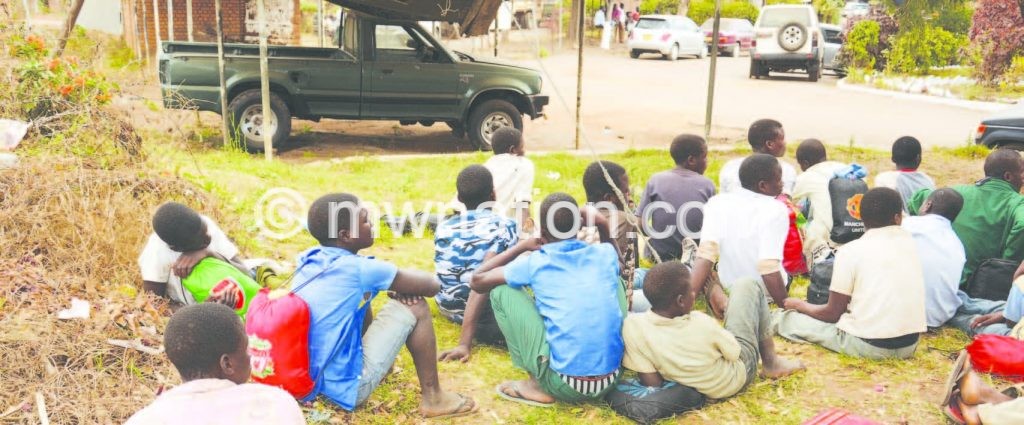Police rescue children from trafficking
A 12-year-year-old Standard Two pupil (name withheld) shows ignorance when asked to explain why he wanted to jump the Mchinji Border into Zambia before the police arrested him two weeks ago.
He quickly names his village in Traditional Authority Malili in Lilongwe Rural.

The boy says: “There was word that we should make the trip (into Zambia) to make money at an estate. But when we were happily on our way, the police officers confronted us and we were surprised that the matter has ended up in court with us (as exhibits).”
He is an example of children who are enticed into forced labour by Zambian and Malawian agents who take them across the border to rich Zambian estate owners bent on securing hard-working and cheap labourers from Malawi.
The boy is one of the eight children, aged below 18, rescued from being trafficked to Zambia over the past month as people prepare gardens and children are idle due to school closure to curb the spread of Covid-19.
He is part of the 43 human ‘exhibits’ police officers have been parading in the Mchinji Magistrate’s Court against traffickers charged with breaching the 2015 Trafficking in Persons (TIP) Act that criminalises sex and labour trafficking.
The victims rescued in Mchinji comprise 14 children, 25 male adults and four female adults.
The police effected the arrests jointly with members of the Mchinji District Coordinating Committee Against Trafficking in Persons, including non-governmental organisations.
Mchinji Police Station spokesperson Kondwani Kandiado said arrests over the trafficking cases are increasing rapidly, fearing that they would total over a 100 in the next month or two.
He said as the trials take place, the victims are kept at the police station’s victim support unit.
Said Kandiado: “The growing numbers are a challenge to us in terms of food, accommodation and sanitation. Our management is doing its best but had it not been for assistance from Care Malawi and the Salvation Army, we could have reached a snapping point by now.”
In a separate interview, national programme officer on Trafficking in Persons in the United Nations Office on Drugs and Crime, Maxwell Matewere, said it is a pity that history shows that trafficked people, including children, generally are forced into back-breaking work under slavery conditions.
He said: “Some of the very inhumane farmers change colours when they about to harvest. They turn around and unleash the police on the labourers, saying they are illegal immigrants who need to be deported. The police then deport the trafficked people back to Malawi, thereby losing any payments.”
Matewere said on a national scale, the problem has been happening for decades, with the trafficked people using uncharted routes across borders mainly in Mchinji in the Centre , and in Phalombe, Mulanje, Mangochi, Zomba and Muloza in the South.
However, he regretted that the victims were being kept at the police station’s victim support unit.
Matewere noted that the government is entitled to reach out to civil society organisations for the use of such shelters, as long as they are gazetted.





